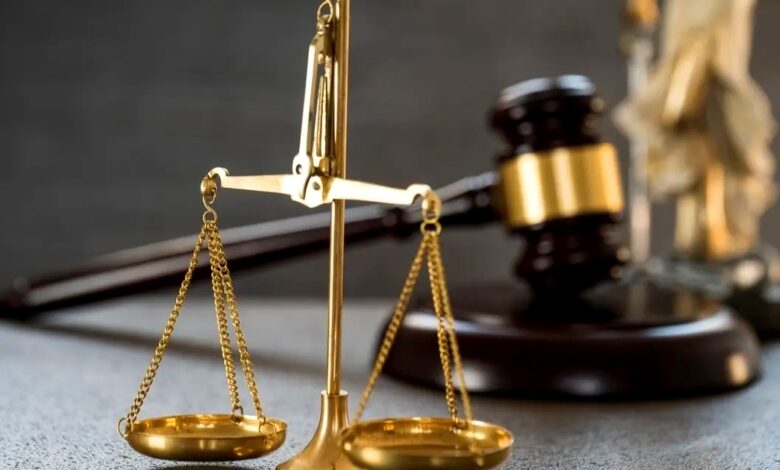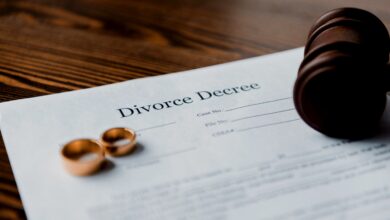How to Clear a Criminal Record in Illinois
This comprehensive guide explains the steps, eligibility, and benefits of Clear a Criminal Record, also known as expungement or sealing, under Illinois law.

If you’ve ever been arrested or convicted of a crime in Illinois, you might already know how challenging it can be to move forward with your life. A criminal record can haunt your future, affecting your chances of getting a job, renting an apartment, securing loans, or even volunteering at your child’s school. The good news? There are legal pathways to clear a criminal record in Illinois, offering a fresh start and a second chance.
This comprehensive guide explains the steps, eligibility, and benefits of clearing your criminal record, also known as expungement or sealing, under Illinois law. Whether you’re dealing with a past misdemeanor, felony, or arrest, this article will help you navigate the process with clarity.
Why Clearing a Criminal Record in Illinois Matters
Your criminal history is public record, which means employers, landlords, and licensing agencies can access it with a simple background check. Even if the charges were dropped or dismissed, the arrest record might still appear. That’s why thousands of Illinois residents apply each year to clear a criminal record through legal means.
Common Benefits of Clearing a Criminal Record:
- Better job opportunities
- Improved housing options
- Access to financial aid and student loans
- Restoration of firearm rights (in some cases)
- Peace of mind and dignity
Understanding the Legal Terms: Expungement vs. Sealing
In Illinois, there are two main legal methods to clear a criminal record:
1. Expungement
Expungement is the complete removal of arrests, charges, and court proceedings from your public criminal record. Once your record is expunged, it’s as if the incident never happened. Law enforcement agencies destroy the physical and digital records.
You may be eligible for expungement if:
- You were arrested but never charged
- Your charges were dismissed or you were found not guilty
- You completed supervision for certain misdemeanors
- You received a pardon authorizing expungement
2. Sealing
If you’re not eligible for expungement, you may still qualify for criminal record sealing. Sealing hides your record from the public, but law enforcement and certain licensing agencies may still have access.
You may be eligible for sealing if:
- You were convicted of a misdemeanor or certain felonies
- Your sentence has been completed
- You haven’t committed any new offenses in a specific time frame
Step-by-Step Process to Clear a Criminal Record in Illinois
Step 1: Obtain Your Criminal Record
To begin the process, you need a copy of your Illinois criminal record, also known as a RAP (Record of Arrests and Prosecutions) sheet. You can request it from the Illinois State Police or the local county circuit clerk.
Step 2: Determine Eligibility
Next, review your charges and convictions to determine whether you’re eligible for expungement or sealing. Illinois law (20 ILCS 2630/5.2) lists which offenses qualify and which do not.
Offenses that generally cannot be sealed or expunged include:
- DUIs
- Domestic battery convictions
- Orders of protection violations
- Sex crimes against minors
- Certain violent felonies
However, recent reforms (like HB 6328) have expanded eligibility, so it’s crucial to check the current laws or consult an attorney.
Step 3: Complete the Proper Petition Forms
Each county in Illinois may have its own forms, but most follow the standard templates available on the Illinois Legal Aid Online website or local circuit court websites. You’ll need to fill out:
- Petition to Expunge or Seal
- Notice of Filing
- Order to Expunge or Seal Criminal Records
Be sure to include detailed information about every case you want cleared.
Step 4: File Your Petition with the Correct Court
File the petition in the county where the arrest or charge occurred. There is usually a filing fee (ranging from $120 to $160), but fee waivers are available for low-income applicants.
Step 5: Notify Prosecutors and Law Enforcement Agencies
You are required to serve notice of your petition to the State’s Attorney, the arresting agency, and the Illinois State Police. This gives them a chance to object if necessary.
Step 6: Attend a Hearing (If Required)
Some cases require a court hearing. If there’s an objection from the prosecutor, the judge will hear both sides and decide whether to grant your petition. If there are no objections, the judge may approve it without a hearing.
Step 7: Wait for the Judge’s Decision
If the judge approves your petition, an order is issued to clear the criminal record by either expunging or sealing it. The process can take anywhere from 60 to 120 days after the order is granted.
Special Programs and Resources in Illinois
Illinois offers various initiatives to help individuals clear their records. Some nonprofit organizations provide free legal assistance for expungement and sealing cases, especially during expungement summits and record relief events in cities like Chicago, Rockford, and Springfield.
Organizations That Can Help:
- Cabrini Green Legal Aid
- Legal Aid Chicago
- New Leaf Illinois
- Safer Foundation
These groups can help you evaluate your eligibility, file petitions, and even represent you in court if necessary.
Recent Legislative Changes That May Help You
Illinois lawmakers have taken steps to expand access to criminal record relief:
- Cannabis Conviction Expungement: Under the Illinois Cannabis Regulation and Tax Act, certain marijuana-related convictions are now eligible for automatic expungement.
- Expanded Felony Sealing: Previously non-sealable Class 4 felonies are now eligible under certain conditions.
- Pardons with Authorization to Expunge: People convicted of crimes not normally eligible for expungement may apply for a Governor’s pardon.
These developments show that Illinois is increasingly supportive of second chances and rehabilitation.
What to Do if Your Petition Is Denied
If the court denies your request to clear a criminal record in Illinois, don’t panic. You may have the option to:
- Refile after a waiting period
- Appeal the decision
- Apply for executive clemency or a pardon
- Seek assistance from legal aid organizations
Frequently Asked Questions (FAQs)
Q1: How long does it take to clear a criminal record in Illinois?
A: The process can take 2–6 months depending on your case and whether a hearing is required.
Q2: Do I need a lawyer to file for expungement or sealing?
A: No, it’s not required—but having a lawyer can increase your chances of success, especially if your case is complex.
Q3: Can I clear federal criminal records?
A: No. Expungement laws in Illinois apply only to state and local offenses, not federal charges.
Q4: What if I have convictions in multiple counties?
A: You must file separate petitions in each county where the convictions occurred.
Final Thoughts: Take Control of Your Future
Your past doesn’t have to define your future. Whether you were arrested and released or served time for a conviction, Illinois offers real paths to clear a criminal record. Doing so can open doors to employment, housing, education, and overall peace of mind.
Start by reviewing your criminal history and learning about your rights. Resources are available to help, and with determination, you can take the necessary steps toward a clean slate.











